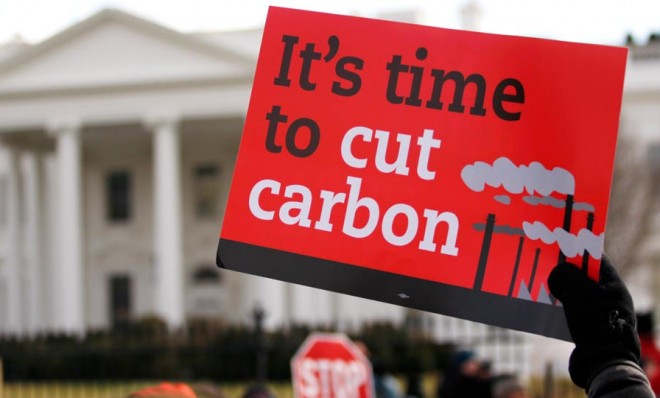What is the 'social cost of carbon' and why does it matter?
The estimate could have a dramatic impact on environmental policy

A free daily email with the biggest news stories of the day – and the best features from TheWeek.com
You are now subscribed
Your newsletter sign-up was successful
Last week, buried in an announcement for updated efficiency standards for microwave ovens, the U.S. Department of Energy casually dropped news that environmentalists are celebrating as a rare win in the battle against climate change: New and improved numbers for the "social cost of carbon."
The social cost of carbon estimates how much, after all is said and done, each ton of carbon burned costs the U.S. economy. When calculating the number, analysts consider everything from how warmer climate trends will impact agriculture, to the damage rising sea water will cause, to the cost of installing charging stations for electric cars. "This is a tricky calculation," says The Washington Post. "It entails scrutinizing climate models and estimating the future effects of higher temperatures, and then translating that into present-day dollar terms, which means deciding how much value to place on future generations."
In 2010, Interagency Working Group on Social Cost of Carbon (the agency that calculates the number) estimated that each ton of carbon would cost the American economy $22 for 2013. The new report, which you can read here, puts the number at $36 per ton. For context, the United States produced the equivalent of 7.4 billion tons (6.3 billion metric tons) of carbon-dioxide in 2011.
The Week
Escape your echo chamber. Get the facts behind the news, plus analysis from multiple perspectives.

Sign up for The Week's Free Newsletters
From our morning news briefing to a weekly Good News Newsletter, get the best of The Week delivered directly to your inbox.
From our morning news briefing to a weekly Good News Newsletter, get the best of The Week delivered directly to your inbox.
So why are environmentlists cheering? Because the White House Office of Management and Budget runs a cost-benefit analysis on all new regulations — and the office will now use the higher estimate when considering carbon-related issues (like, for example, the Keystone Pipeline). "This will, all things being equal, increase by 60 percent the amount of carbon mitigation that can be economically justified," explains David Roberts at Grist. "That’s a big deal, especially in light of the fact that EPA regulations are going to make (or break) Obama’s second-term climate legacy."
As the Daily Kos puts it: "We simply can't ignore the fact that each ton of CO2 that we put in the air has a dollar sign associated with it."
The new numbers may not affect policy right away, says Roberts. "It won’t alter the politics of those regulations, and sadly, political considerations generally count for more than cost-benefit analysis." But, he continues, "if this number stays on the books — and if the government continues to update it based on the latest science — it will eventually worm its way deep into the regulatory apparatus and do something that no amount of argument and advocacy have been able to do: Force the federal government to properly value the climate."
A free daily email with the biggest news stories of the day – and the best features from TheWeek.com
Carmel Lobello is the business editor at TheWeek.com. Previously, she was an editor at DeathandTaxesMag.com.